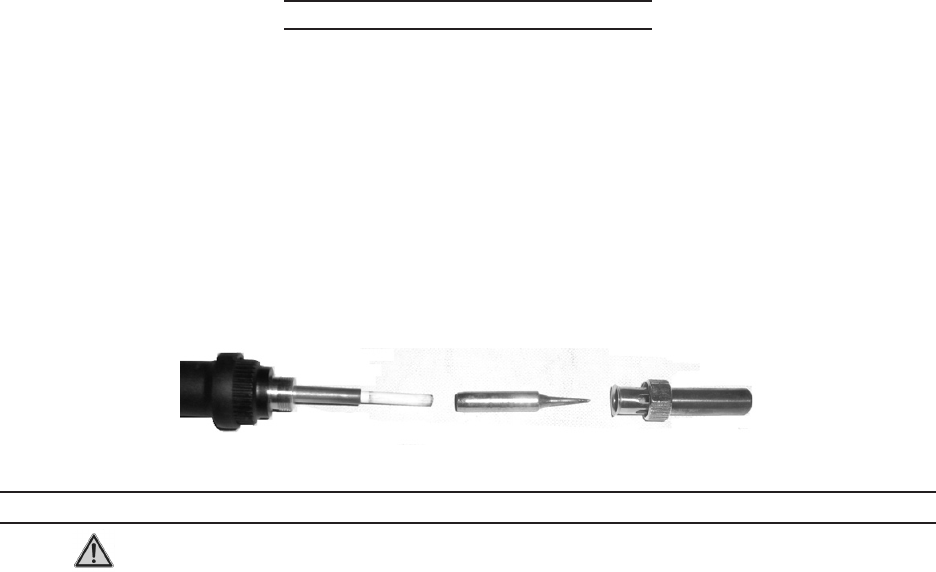
Page 10SKU 96375
For technical questions, please call 1-800-444-3353.
solder will follow the heat. This technique is helpful when soldering joints, such as
a tube in a coupling. By applying solder to the edge of the coupling and then mov-
ing the soldering tip away from the edge, solder can be dragged into a concealed
joint as it follows the heat.
LEAD WARNING: Some solders contain lead and some do not. Be extremely
careful not to breathe vapors from any solder, especially ones containing lead.
Lead is a heavy metal which can accumulate in the body and cause serious health
problems.
Solder is available in various types. Some solders have a flux core and some do
not. Flux core solders contain flux and reduce the need to clean the work pieces
before joining. Solid core solders do not contain flux, and require careful cleaning
of the work material, and application of flux for additional cleaning.
Solder is available in various melting points. The heat range of solder may be ex-
pressed in temperature, or may be expressed as “easy,” “medium” or “hard”. When
making several solder joints on a single workpiece, you may use a mix of solder
temperatures. “Easy” solder will melt before “medium”, “medium” will melt before
“hard”, and “hard” will melt at only the highest temperatures.
Replacing the Soldering Tip
Turn Power Switch (8) to the “OFF” position and unplug the Soldering Station from
the electrical outlet. Allow adequate time for all surfaces to cool down.
Unscrew Soldering Cord Retainer (29) from Soldering Cord Connection (7).
Unscrew Tip Retainer (25) holding Soldering Tip onto Handle Sleeve (24) and re-
move. Remove the Soldering Tip.
Place new Soldering Tip on Handle Sleeve, replace Tip Retainer, and secure firmly.
Do not overtighten.
Handle Sleeve
Soldering Tip
Tip Retainer
INSPECTION, MAINTENANCE, AND CLEANING
WARNING! Make sure the Power Switch of the tool is in its “OFF” position and
that the tool is unplugged from its electrical outlet before performing any inspection,
maintenance, or cleaning procedures.
BEFORE EACH USE, inspect the general condition of the tool. Check for loose
screws, misalignment or binding of moving parts, cracked or broken parts, dam-
6.
7.
8.
1.
2.
3.
4.
1.
2.
